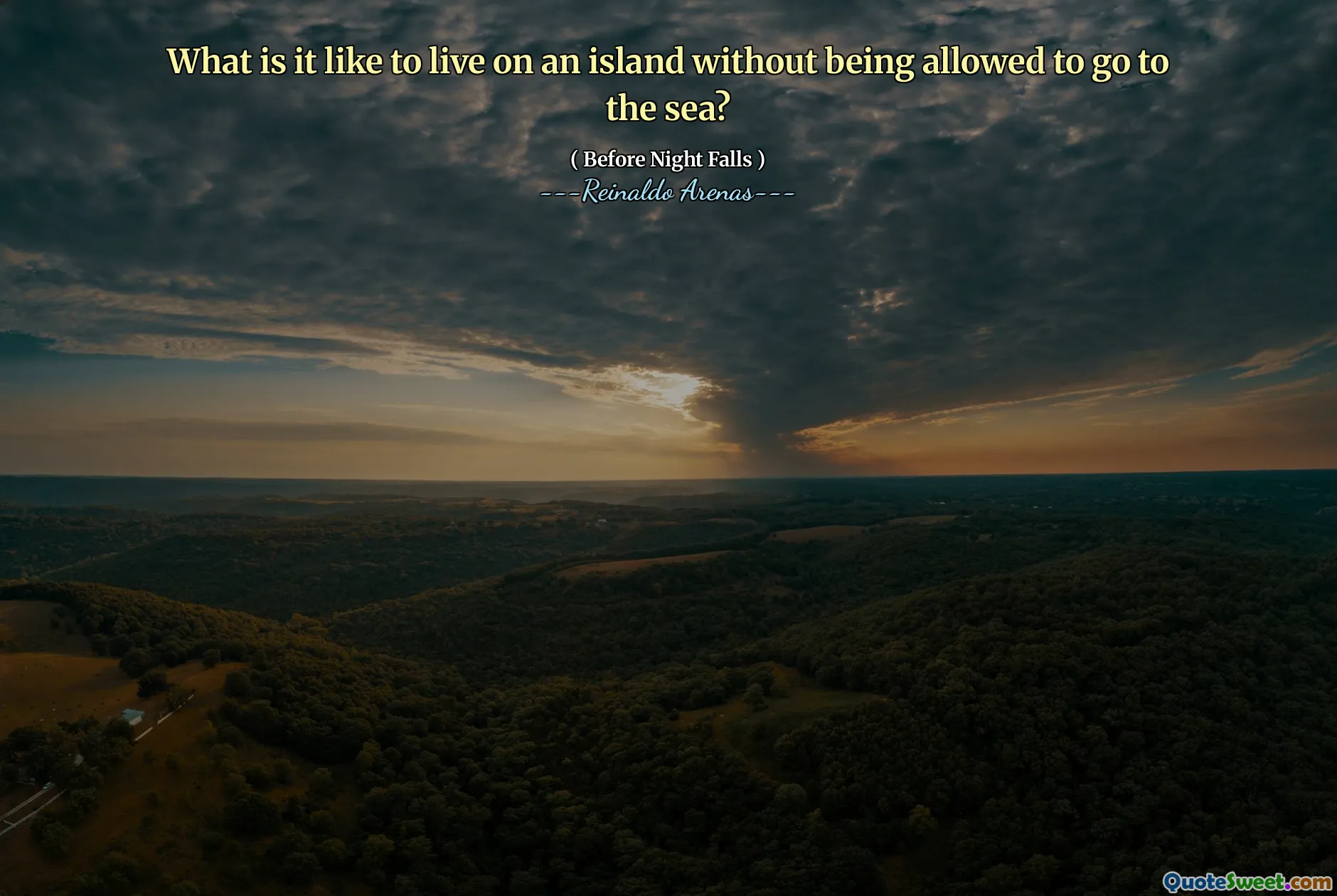
What is it like to live on an island without being allowed to go to the sea?
Living on an island inherently implies a close relationship with the surrounding sea—a vital source of livelihood, freedom, and inspiration. The sea often symbolizes boundless possibilities, a realm of exploration and discovery. When this connection is restricted or denied, it fundamentally alters one’s experience of island life. The quote prompts reflection on how limitations imposed externally—be it social, political, or personal—can transform the essence of living in a space traditionally associated with openness and freedom.
In the context of Reinaldo Arenas's work, this question could resonate with themes of censorship, exile, and the struggle for self-expression. Being unable to access the sea might symbolize being cut off from vital sources of sustenance—both physical and spiritual. It raises questions about freedom—what it means to be truly free and how restrictions can diminish our experiences and perceptions of the world around us.
Moreover, the metaphor extends beyond physical barriers; it touches on emotional and psychological constraints. Living on an 'island' in a metaphorical sense may represent isolation, while the inability to approach the 'sea' symbolizes loss of community, voice, or opportunities for growth. Are we merely surviving in our confined spaces, or are we truly living?
This quote invites us to consider how our environments shape us and how restrictions—whether self-imposed or externally enforced—limit our potential. It underscores the importance of openness, exploration, and connection to the broader world—elements that define a fulfilling existence. The image of the island without access to the sea becomes a powerful symbol for confronting limitations and the human desire for freedom and discovery.






